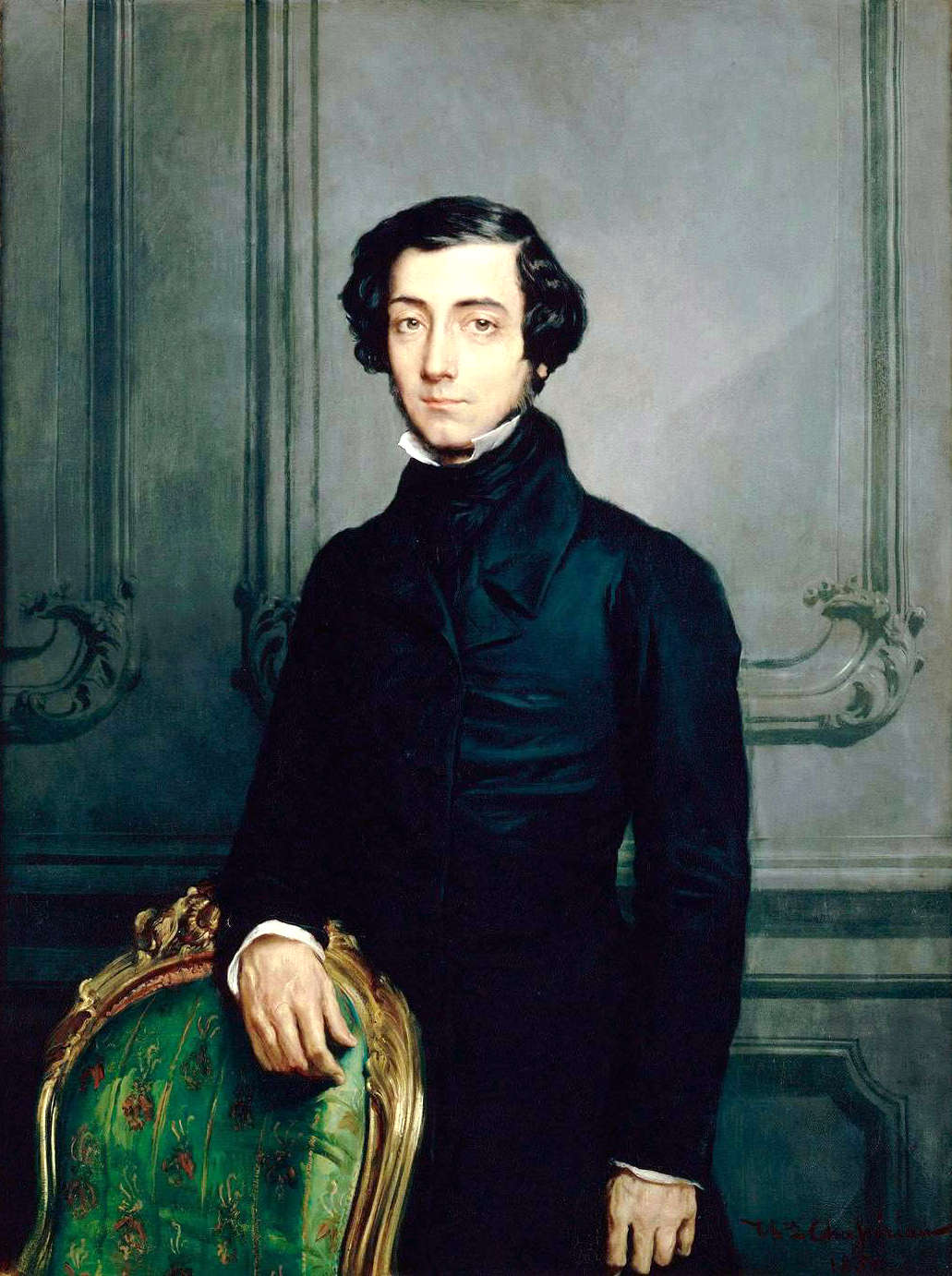How Alexis de Tocqueville predicted the alt-right — almost 200 years ago
He warned us that democracy can turn against freedom


A free daily email with the biggest news stories of the day – and the best features from TheWeek.com
You are now subscribed
Your newsletter sign-up was successful
Alexis de Tocqueville warned us that democracy can turn against freedom.
The public/private divide that long grounded our consensus liberal regime has begun to be replaced. In the public and private sector alike, the new regime is busily effacing the old boundary that separated regulated thoughts and actions from unregulated ones. Think of today's battles over who gets to use what restroom, how harmful free speech can be, or what sort of political symbolism creates an officially hostile work environment.
There is a very clear boundary between prescribed virtue and proscribed vice. Indeed, the health and safety police need that boundary to police, even if they have to prove that it keeps creeping forward with ever smaller steps. Inside the boundary, life is kept rigorously rational, scripted, risk-averse, sanitized, clean, and secure. But there will always be a misfit remnant beyond the gates, impulsive, unscripted, risk-begging, filthy, coarse, and dangerous.
The Week
Escape your echo chamber. Get the facts behind the news, plus analysis from multiple perspectives.

Sign up for The Week's Free Newsletters
From our morning news briefing to a weekly Good News Newsletter, get the best of The Week delivered directly to your inbox.
From our morning news briefing to a weekly Good News Newsletter, get the best of The Week delivered directly to your inbox.
Ladies and gentlemen, this is the alt-right.
Indeed, much of the alt-right, the neo-reactionaries, and the rest of today's new political movement arose predictably from the wilds of enforced culture's no-go zones, where today's seemingly universal health-and-safety police could not or would not patrol. Are they at war with liberalism? Sure. But at root, they're even more dedicated to defeating the post-liberal regime that has come to replace it — the regime that makes a supreme virtue of progressively regulating health and safety.
And Tocqueville predicted it. He noted that equality in servitude would hold secret charms for weak and isolated people whose experience of individualism was of struggling for distinction among millions just like them, clamoring for the same few goals. But at the same time, he cautioned that the same boundary police they'd be apt to turn to for relief would also wound their pride. The meddling of officialdom in the details of everyday life actually makes us feel small and powerless, even when it's to our own benefit. And for the officials doing the meddling, coarse people tend to seem deplorably incapable of running their own lives in healthy and safe enough fashion.
In this climate, Tocqueville observed, sharp economic inequalities could arise from the general deepening of equality in habits and mores. So instead of a war between haves and have nots, we have a powerful officialdom that unites the super-rich and the poor in a coalition around the expert production, broad distribution, and progressive advancement of health and safety. The clear implication of Tocqueville's ruminations on the intersection of individual weakness, official invasiveness, collective resentment, and fear of the cultural wilds was that the new center of gravity for political opposition to officialdom would arise from those most comfortable with risk, dirtiness, danger — with everything a strict nurse or Human Resources manager would disapprove of.
A free daily email with the biggest news stories of the day – and the best features from TheWeek.com
Enter Pepe. Enter Trump. Enter the Deplorables. Here is a constituency that loves more than anything to fling its filthy goo into the face of those for whom unofficial vice is an existential terror.
The task now facing the GOP is daunting: to return a constructive culture of natural risk to the political mainstream, transcending the false choice between official virtue and unofficial vice. Even more daunting, Tocqueville suggests that all national politics can do is try to focus the public imagination on goals that draw us together without rancor. Good luck with that.
James Poulos is a contributing editor at National Affairs and the author of The Art of Being Free, out January 17 from St. Martin's Press. He has written on freedom and the politics of the future for publications ranging from The Federalist to Foreign Policy and from Good to Vice. He fronts the band Night Years in Los Angeles, where he lives with his son.
